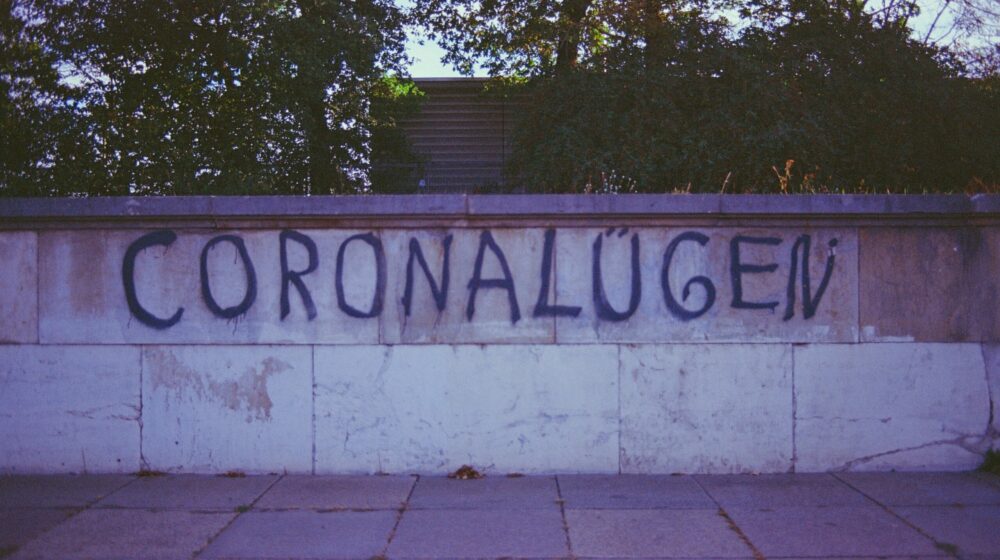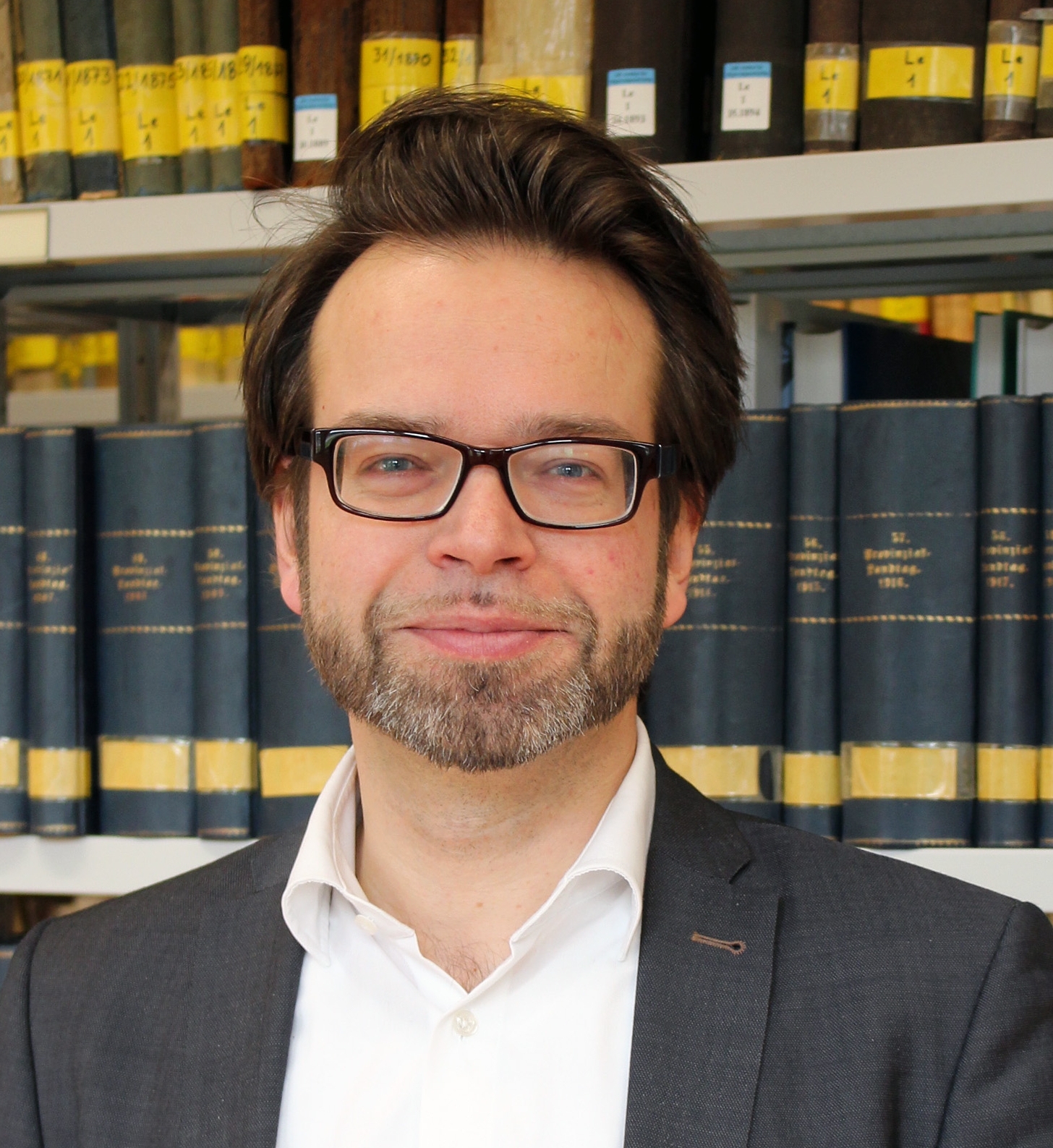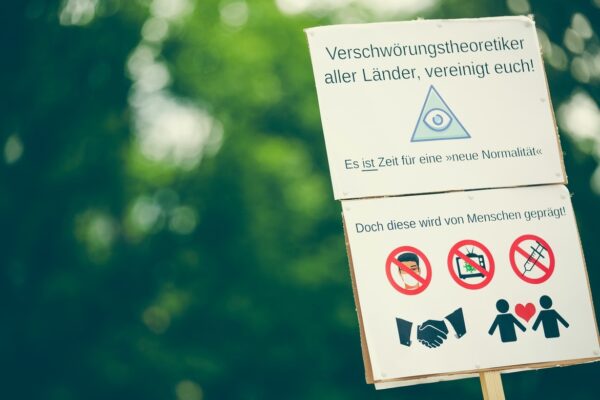How anti-vaxxers radicalize

Vaccination skeptics and public criticism of vaccination are nothing new. During the coronavirus pandemic, however, part of the population has become radicalized, dredging up centuries-old conspiracy theories to justify their views. Prof. Dr. Malte Thießen, medical historian at the LWL-Institut für westfälische Regionalgeschichte (Institute for Westphalian Regional History) examines the parallels that can be drawn between anti-vaxxers past and present.
What are your thoughts when you see so-called anti-vaxxers demonstrating on the streets or when you hear about the alleged plot to assassinate the state premier of Saxony or other similar events?
It’s frightening to see the levels of radicalization we’re experiencing right now, and it’s especially frightening because it gives me a sense of dejà vu. If you look back to the 19th or 20th centuries, you can make very similar observations about the radicalization of vaccination opponents and about how criticism of vaccination can be instrumentalized by the right. And that’s frightening because we’re living in the 21st century – shouldn’t we have put all that behind us by now?
Why do about 14% of the population refuse vaccination against Covid-19?
There are all sorts of different reasons. One reason is that the vaccines are relatively new. That may be a simple reason, but it’s one that still weighs heavily in my view. We‘ve had massive vaccination programs in the Federal Republic of Germany since the 1970s for a wide range of different infectious diseases. All of them are voluntary, but we still have vaccination rates of over 90 percent. Vaccination against COVID-19 is new, and although studies have produced really excellent results, there is still an initial primal fear that results in greater hesitancy than we see with vaccinations that are more familiar to us.
Feelings run high when it comes to the subject of vaccination.
However, vaccination is never just about the jab itself; vaccination is always a social and a political issue. And that’s what makes it so explosive. Vaccination is being used as a kind of “Trojan horse” to stir up public opinion on a range of other issues. This phenomenon can be observed in right-wing and populist circles. But some of the questions raised are perfectly legitimate: who owns our bodies is just one of them. Should the state be allowed to make decisions about our bodies or is controlling what happens to our bodies an individual right? These are very fundamental questions about the kind of society we want to live in, and that’s why feelings run particularly high when it comes to the subject of vaccination.

»Vaccination is never just about the jab itself; vaccination is always a social and a political issue.«
Prof. Dr. Malte Thießen, Medical historian
Are some of the conspiracy theories surrounding vaccination propagated during the Nazi era currently enjoying a comeback?
The fact that we’re seeing people embrace antisemitic conspiracy theories again nowadays is particularly frightening. They played a role right from the start of the coronavirus pandemic, before vaccination entered the equation. Even at that early stage, conspiracy theories began to emerge suggesting that the coronavirus was being spread through the groundwater in Berlin; this harked back to the stereotypical idea of old that Jews poison wells. Now we have a similar situation with vaccination; here, too, ancient antisemitic stereotypes are on the rise again. Let me give you an example: The idea that vaccination was a Jewish attempt to poison the body of the nation and that it was a form of racial defilement emerged as early as the 1870s in connection with vaccination against smallpox. So this motif can be traced back to the Nazi era and even further back to the 19th century.
What was the attitude towards vaccination in the Nazi era?
On the one hand, the Nazi party (NSDAP) was a hotbed for people who opposed vaccination, such as Rudolf Hess, Julius Streicher, and Heinrich Himmler. Naturopathy, homeopathy, and the Lebensreform (life reform) movement of the 19th century all saw vaccination as “the stuff of the devil,” a modern invention that got in the way of a natural way of life, so to speak. This idea first emerged in the 19th century and enjoyed a revival in the 1920s thanks to the NSDAP. On the other hand, vaccination was heavily promoted in the Third Reich as a means of protecting public health. The Reichswehr, in particular, lobbied against any relaxation of vaccination requirements that could compromise their ability to maintain military effectiveness. World domination suddenly appeared more important than the healthy “body of the nation.”

In your book, you write about the “sources of the Querdenker group” (the group’s name literally translates as “lateral thinkers”) – what does this group base its thinking on?
I think it’s very important to realize that vaccination critics have a wide variety of different motives, and history can provide helpful pointers here too: There are a lot of right-wing blatherers, “tin foil hatters,” and antisemites among their ranks, but there are other elements too. One of the first things that comes to mind is the relatively widespread concern about side effects, for example, and a critical attitude towards pharmaceutical companies. Some hold the view that pharmaceutical companies are deliberately fueling the pandemic to make a profit, while others think they’re using vaccines to poison us or even as a ploy to implant us all with microchips. Many of these ideas tend to be rooted in left-wing, anti-capitalist thinking.
In another interview, you once said that “The NSDAP saw itself as the advocate of those who opposed vaccination […] very similar to the AfD [a right-wing populist party in Germany] today” – how do you explain this strategy and why does it still work today?
As early as the 1920s, the NSDAP spearheaded opposition to vaccination because the party recognized and wanted to exploit the issue’s potential for political mobilization. Antisemitic stereotypes played a central role here. The AfD is deliberately using the issue of vaccination to mobilize support, especially in parts of eastern Germany. This is because vaccination is being used to represent something entirely different: The real issue here is a much more deeply seated discontent that has been fermenting for some time and is now finding an outlet in attitudes towards vaccination. Vaccination stands for “the powers that be” who govern the country without giving due regard to the realities of people’s lives. During the pandemic, the AfD was quick to recognize the potential for using vaccinations and criticism of compulsory vaccination to stir up public opinion.
»Appropriating victim status and equating vaccination with the Holocaust are deliberate ploys that present a huge problem.«
We see a mixture of different historical points of reference being used at protests against measures to prevent the spread of the coronavirus; right-wing ideas are part of the mix, but protesters also equate themselves with victims of the Holocaust and other forms of persecution, to mention just two examples. How do you view these developments?
The fact that the yellow Star of David that was used to identify Jews in the Nazi era is now being seen at demonstrations is an extremely sensitive issue. It would be cynical to say that this popularization of the politics of history is a symptom of the success of our culture of remembrance. Many initiatives implemented in the 1980s and 1990s put the Third Reich on the public radar, much more so than it had ever been before, and the Third Reich now has a fixed role in our political culture. In 2020, people had already begun to feel oppressed by the measures introduced to combat the coronavirus, and they started comparing themselves to Sophie Scholl and Anne Frank. The comparisons are vile, of course, but they are also a consequence of the culture of remembrance.
Appropriating victim status and equating vaccination with the Holocaust are deliberate ploys that present a huge problem. This is all part of an attempt to relativize the past, and I’m certain that it’s being done very deliberately.
Conspiracy theories and antisemitism are going to stay.
What do you think should be done about the spread of conspiracy theories related to the pandemic?
I don’t think there’s much we can do to reach some of the critics of vaccination, because vaccination isn’t the real issue. What we’re dealing with here are more deeply-seated reservations and problems. But that also means we shouldn’t expect these problems to disappear once we’ve managed to contain the coronavirus. Conspiracy theories and antisemitism are going to stay with us in the long-term. It’s important to strengthen local initiatives that invest in civic education. We need to try to stay in the conversation and encourage those people we can still reach to get vaccinated. But we also need to encourage them to remain within the bounds of rational discourse so as not to increase support for the radical core.
Thank you for giving us this interview, Mr. Thießen.
His book “Auf Abstand Eine Gesellschaftsgeschichte der Coronapandemie” was published by Campus Verlag in September 2021.

